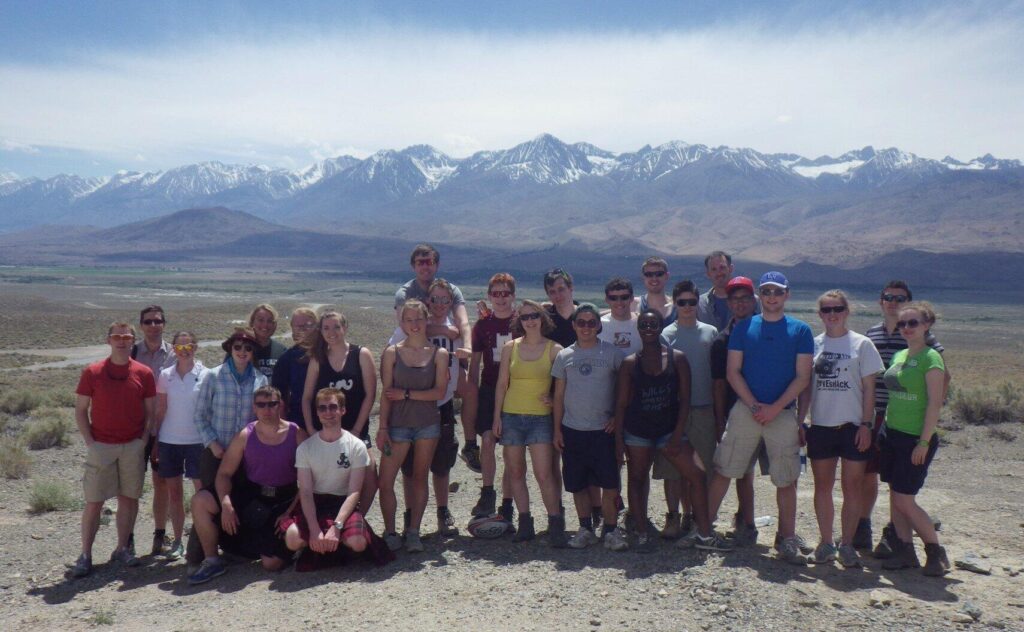
We are living through a time of unprecedented change on Earth. Scientific understanding of geological hazards, sustainability, infrastructure, climate change, energy, and natural resources has never been so important, and Earth Sciences sit at the heart of the challenge. The Department of Earth Sciences at Durham University provides students with an expansive understanding of how the planet works and of our relationship with the planet now and in the future. We offer four 3-year BSc courses and one 4-year MSci course that allow you to follow your interests and learn at the cutting edge of human knowledge. We are also part of Durham University’s Natural Sciences program in which you can study Earth Sciences alongside Geography, Biology or Chemistry.
During your dissertations and research projects you can join in with our world-leading research and work alongside staff to help find solutions to major problems and questions about our planet. Our courses will provide you with key skills such as problem solving, critical thinking, data analysis and synthesis, and you can develop key practical skills in the field in amazing locations in the UK and abroad. Earth Science degrees prepare you for rewarding graduate careers within the Geoscience sector and beyond.
On this course you will learn the fundamentals about how the Earth works, what it is made of and how we interact with it. The course covers topics such as tectonics and rock deformation, climate chance, igneous petrology, paleontology, GIS, volcanology and more. You will leave with a broad quantitative skillset acquired in class, in the lab and in the field. Your dissertation will take the form of a geological mapping project based in the UK or abroad: your chance to write a little bit of Earth’s history.
Our Environmental Geoscience course provides a fundamental understanding of how the planet works and of our relationship with it. You will gain practical experience using industry-standard environmental monitoring kit in the field to analyse and trace chemical pollutants in the air, ground and water, and you will learn about the latest developments in land remediation, environmental management and climate change. Your dissertation will be in the form of a novel research project and may include fieldwork, laboratory analysis, data analysis or modelling.
Our Geophysics with Geology course is a strongly quantitative course that focuses on the application of physics to Earth Science problems. You will gain a broad understanding of how the planet works in year 1 and then go on to learn how to use geophysical methods and remote-sensing methods to help solve key Earth Science questions. You will gain practical experience in the field and undertake a geophysics-based dissertation.
Our Geoscience course is deliberately not accredited in order to maximise module choice for students. This course offers the potential for the least amount of fieldwork for any of our courses. Your dissertation will consist of a novel research project working alongside one of our staff members and could involve experiments, analyses, computer modelling or data analysis.
On our 4-year MSci course you will follow one of our BSc courses for the first 3 years before taking an additional year that will develop your research and critical thinking skills. For half of that year you will undertake a novel research project on any aspect of Earth Science – this could end up being published in a peer-reviewed scientific journal! You will also have the opportunity to undertake a high-level fieldtrip, which we currently run to Nevada and California. This course is great if you have a passion for research or want to enter into a research-centred career.
BSc Natural Sciences Earth Sciences (+ Geography, Biology or Chemistry)
Durham Earth Sciences is part of the Natural Sciences program and you can undertake Joint Honour courses with Geography, Biology and Chemistry. These multidisciplinary courses allow you to broaden your academic experience and see and develop the links and synergies between topics.
We aspire to help shape the future by providing the highest quality education for our students and by undertaking research that is both intrinsically excellent and relevant to society. We place research-led teaching at the centre of our undergraduate programme because we want our undergraduates to be at the forefront of knowledge generation in the 21st century.
Please visit our website durham.ac.uk/earth.sciences/undergraduate or go here to find out more about studying at Durham University.
For more information contact Richard.brown3@durham.ac.uk


